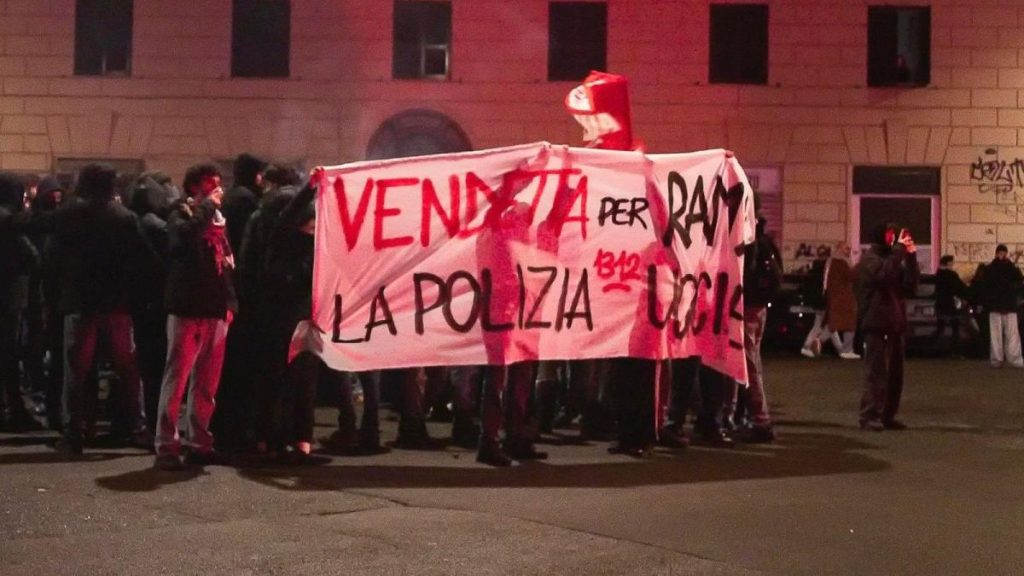The death of 19-year-old Ramy Elgaml, an Italian-Egyptian youth, during a police chase in Milan last November has ignited a wave of protests across Italy, culminating in violent clashes between demonstrators and law enforcement over the weekend. Elgaml was a passenger on a moped driven by his friend, Fares Bouzidi, when they were pursued by a police car for eight kilometers. The chase ended tragically when the moped crashed into a pole, resulting in Elgaml’s death. The incident has sparked outrage and raised questions about the police’s conduct during the pursuit.
The release of a video capturing portions of the chase further fueled public anger and prompted demonstrations organized by the Italian Anti-Racist Coordination, joined by student groups and various associations. The video reportedly includes audio of the pursuing officers making comments about the chase and expressing frustration at their inability to stop the moped. While the video shows the police car in close proximity to the moped, it remains unclear whether there was physical contact between the two vehicles before the crash. Bouzidi, who survived the crash, claims the police car touched the moped, a claim currently under investigation.
The protests, initially intended to commemorate Elgaml and demand justice, quickly escalated into violence in several Italian cities, including Rome and Bologna. In Rome’s San Lorenzo district, demonstrators hurled smoke bombs and other projectiles at police, resulting in injuries to at least eight officers. Simultaneous protests in Milan, Brescia, and Bologna also witnessed violent outbreaks, with shop windows smashed in Bologna and at least ten officers injured. Two individuals were arrested in Bologna for their alleged involvement in the violence but were later released. The protests in Bologna also saw the city’s synagogue vandalized with graffiti referencing the Gaza conflict, further complicating the narrative surrounding the demonstrations.
The violent turn of the protests has drawn widespread condemnation, including from Prime Minister Giorgia Meloni, who denounced the demonstrators as “troublemakers” driven by “a purely vindictive spirit.” Meloni criticized the use of paper bombs, smoke bombs, and physical assaults against police officers, characterizing the events as an “ignoble episode of disorder and chaos.” The Prime Minister’s statement reflects a broader concern about the escalating violence and the potential for such incidents to be exploited by extremist elements.
Amidst the political fallout and public outcry, Elgaml’s family has issued a statement condemning the violence and distancing themselves from any political exploitation of their son’s death. They expressed deep distress over the use of Ramy’s name as a pretext for violent acts and vandalism, emphasizing that his memory should be a symbol of unity, not division or destruction. The family’s plea for peace and their rejection of the violent protests underscores the complex and multifaceted nature of the situation, where grief and outrage are intertwined with political agendas and social unrest.
The ongoing investigation into the circumstances surrounding Elgaml’s death is crucial for determining the facts of the case and addressing the public’s concerns about police conduct. Bouzidi faces charges of aggravated resistance and is under investigation for road homicide in complicity. The police officer who drove the pursuing vehicle is also under investigation. Authorities are currently examining the possibility of road homicide rather than the more serious charge of murder with possible malice. The outcome of the investigation will undoubtedly have significant implications for the ongoing debate about police accountability and the use of force in law enforcement. The incident has also reignited discussions about racial profiling and discrimination within Italian society, highlighting the need for continued dialogue and efforts to address underlying social tensions.














